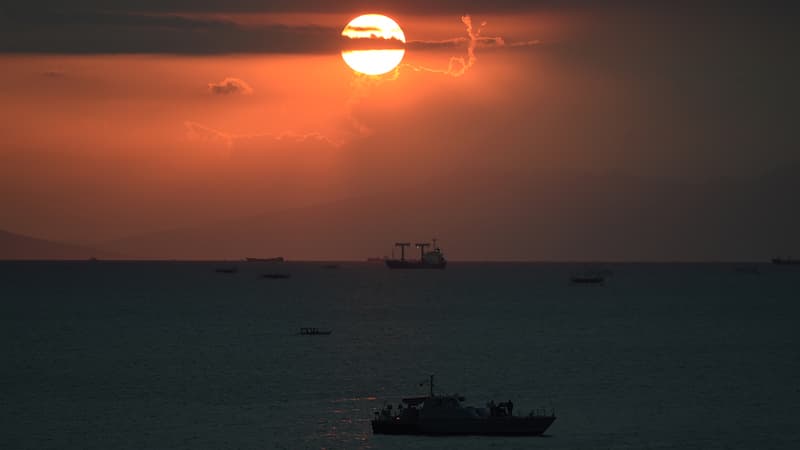Nobody wants to receive the burden. More than 20 containers of radioactive zinc have been stranded off the coast of the Philippines for more than a week, a Philippine nuclear official said on Friday, October 31, calling for a solution to be quickly found for their disposal.
Traces of cesium 137, a radioactive product, were detected in 23 containers in Indonesia, which “rejected and re-exported” them to the Philippines, where they came from, explained an official in Jakarta. The containers have been in Manila Bay since October 20 and authorities are arguing with the company Zannwann International Trading Corp, which they accuse of being behind the shipment.
He called the situation a “headache” but insisted that the radiation levels detected are not very significant. “This is not a national emergency. It is a problem that can be solved,” he said.
Contaminated zinc dust
The contaminated zinc dust, a byproduct of steel production, was exported by Zannwann International Trading Corp after it was obtained from recycler Steel Asia, Arcilla said.
Steel Asia temporarily suspended operations at its scrap recycling plant but denounced the PNRI’s findings as “unfounded and unscientific” and said it was not its cargo. The AFP tried to contact the company Zannwann, which did not respond.
The containers were rejected by Indonesia last month as the country faced a scandal over radioactive contamination of several food products. Authorities suspect that the cause of this pollution is scrap metal imports.
The U.S. Food and Drug Administration (FDA) recently announced a recall of frozen shrimp and cloves imported from Indonesia that contain traces of the radioactive isotope Cesium-137.
According to the FDA, long-term exposure to cesium-137, even at low doses, may lead to an increased risk of cancer. Cesium 137 is used in various medical or industrial applications.
Source: BFM TV


